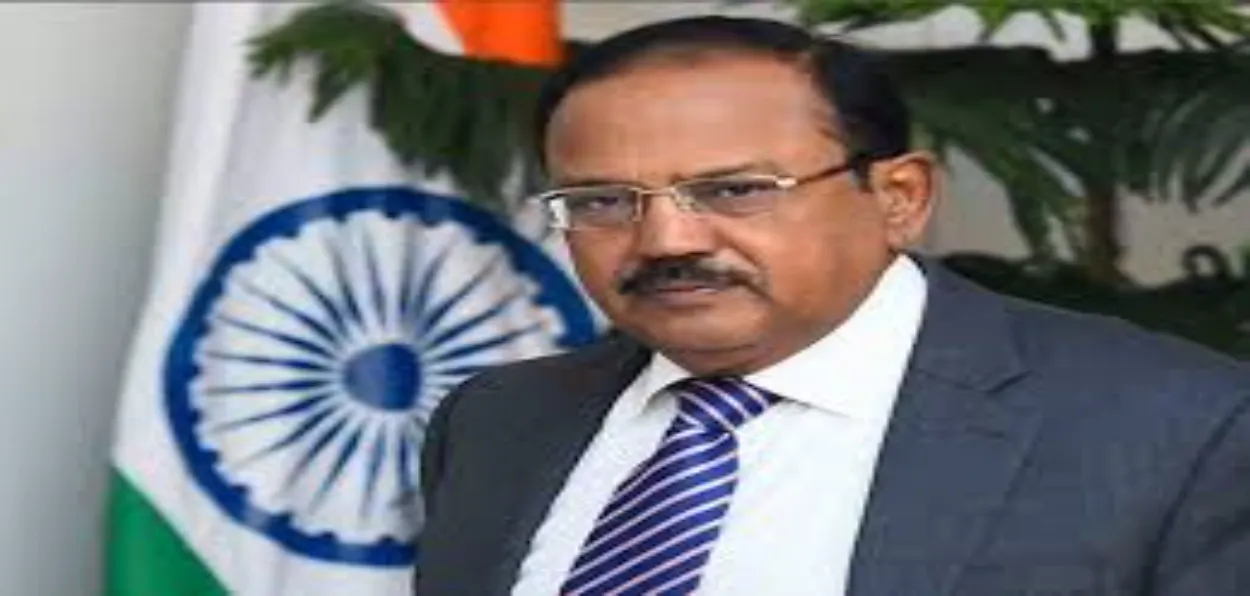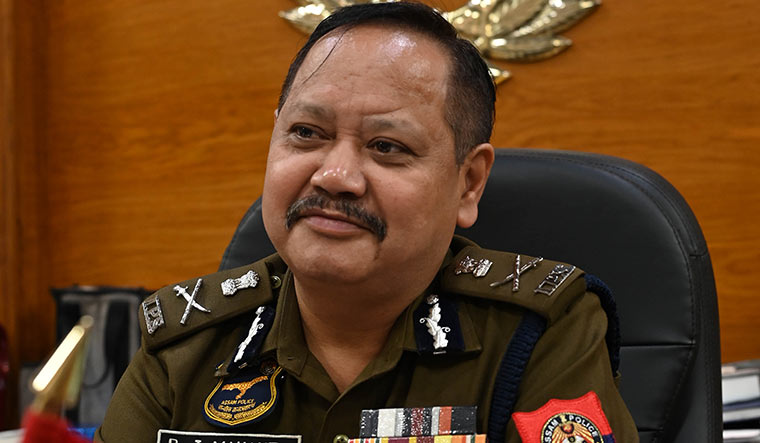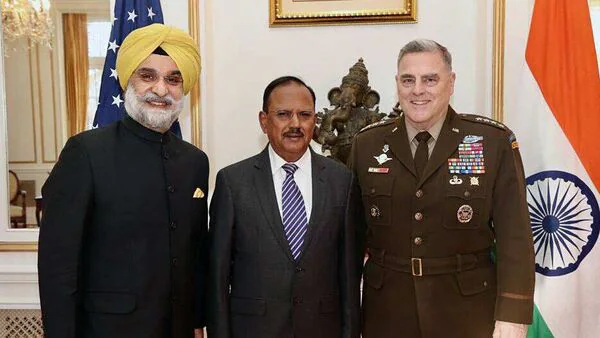
 Bhaskar Jyoti Mahanta
Bhaskar Jyoti Mahanta
Few in India’s strategic affairs domain have carved a niché for themselves as has Ajit Doval, the Kirti Chakra awardee and longest serving National Security Advisor of India. His continuation in the third term and elevation to the rank of a Cabinet Minister, is a testament to the profound trust and significance that the government ascribes to his strategic acumen and leadership in navigating the complex landscape of national security and foreign policy for India.
What is the “Doval Doctrine” NSA's idea for dealing with national security and related strategic issues?
To trace the genesis of this Doctrine, one could refer to perhaps the first incident where Doval gained attention in the South Block and PMO. As a young Indian Police Service officer, Doval, while serving in his home cadre of Kerala, was called upon to neutralise a communal situation in Thalassery, Kerala. Legend has it that it was so complicated that even senior officers refused to take charge. As a greenhorn, Doval is known to have taken to this situation as fish would to water. However, his approach was unconventional.
He spent the first few days gathering primary intelligence on the real trigger to the communal violence and the pathways to resolution. Once he had his fingers on the nerves of both communities, he used tact and negotiation rather than batons and guns to resolve the situation within a week. This was unexpected by both his administrative and political bosses. This negotiation skill, honed over subsequent years, was called upon again during the infamous Kandahar hijacking, where Doval turned an impossible situation into a face-saving exit for the government.
As he changed tracks to join the Intelligence Bureau, he earned his stripes in Mizoram and, later, in Sikkim. In Mizoram, he played a stellar role in offsetting the Mizo National Front (MNF), a secessionist group backed by China. As the boss of the Subsidiary Intelligence Bureau in Mizoram, he artfully worked with the seven key commanders of MNF, who were the key pillars of the organisation’s chief, Laldenga. Over a period, he employed all elements of his intelligence toolkit: money, ideology, coercion, ego, and convinced six of these commanders to switch allegiance and join the mainstream.
This was a death blow to MNF from which it could never recover, and it had no choice but to join the mainstream. Even his staunchest critics grant him full credit for this operation. In Sikkim, working closely with the original czar of Indian intelligence, R. N. Kao, he played a similar role, and through non-conventional means delivered lethal blows to the enemy formations and interests.
These early successes coupled with his role in subduing the insurgency in Punjab and especially his stellar role in Operation Black Thunder which was recognised by the President of India who awarded him the coveted Kirti Chakra, shaped Doval’s approach to conflict resolution in a way which can be best described in cricket parlance as “balled intelligence, caught law enforcement/military.”
This reliance on intelligence as the primary tool of national security eventually matured into his philosophy of “defensive offence,” which forms the bedrock of India’s current national security doctrine. This represents a fundamental shift in India’s power projection since he assumed the role of India’s NSA in 2014. The underlying philosophy of Doval’s paradigm seems to be one of preemptive action, asserting that India would shun passivity and engage threat actors one way or the other, irrespective of jurisdiction.
 NSA Ajit Doval with Ambassador Taranjit Singh Sandhu and General Mark Milley, Chairman of Joint Chiefs of Staff, USA in Washington
NSA Ajit Doval with Ambassador Taranjit Singh Sandhu and General Mark Milley, Chairman of Joint Chiefs of Staff, USA in Washington
This marked a clear departure from India’s decades-old practice of deploying strategic restraint, even if it meant absorbing a degree of cost, to project India as a status quo power with benign objectives. The Doval Doctrine emphasises the escalating costs for inimical forces through economic, political, security, and diplomatic surcharges. This can be seen in India’s approach towards Pakistan, especially post-Pathankot, when Doval started getting a free hand in dealing with our Western neighbour.
A fundamental principle underpinning the Doval Doctrine is a clear definition of the primary strategic threat as an essential prerequisite for formulating and implementing an effective counter-strategy. This proactive approach was seen in the recent Operation Sindoor, where Doval reportedly coordinated the planning and execution.
Beyond relying on kinetic action, in his true self of being a spook, Doval has displayed the flexibility of choosing the right weaponry and calibrating it based on the adversary. His role in defusing tensions with China both in 2017 and 2020 onwards, where he deployed diplomacy and dialogue or his tactic of wearing off the will of the adversary, as displayed in the way the Indian state has dealt with NSCN-IM once he took charge, demonstrates his range of expertise in matters of national security.
Among all his heroics, what often goes unnoticed is Doval as the institution builder. He has painstakingly built the National Security Council Secretariat (NSCS) and empowered the National Security Advisory Board. This must become a case study for management students in organisational restructuring and resurgence.
Today, the epicenter of India’s national security apparatus has effectively shifted from the South Block to the Sardar Patel Bhawan, where the NSCS is housed. Another key component of this long-term impact is his role in shaping the Indo-US relationship, as exhibited by key outcomes like the India-US Initiative on Critical and Emerging Technologies.
During my posting as Director General of Assam Police, I had noticed some stellar traits in the Spy Master's way of operating. Firstly, when it came to national security, he would keep all political differences aside as the nation is supreme. Though a career spook, the NSA still holds his IPS ethos close to his heart and emphasised the “Indian” in IPS to the author multiple times. I had an insight into the platinum-grade leadership and operational acumen of NSA Foval when I sought his advice about a fundamentalist organisation which was subsequently proscribed.
While Assam Police, along with the DG, NIA, focused on gathering evidence and building a case for the proscription, the NSA was way ahead of us and worked to control the aftermath and reaction of its cadres and sympathisers. To tackle any second-order effect, the NSA gave us a master class in intelligence operations and subterfuge. He built a pathway to discredit the leaders for their support base through means which even I, a senior officer, could not have dreamt of.
ALSO READ: NSA Ajit Doval: Architect of India's Decisive anti-terror mechanism
As a result, the ban has not evoked a single protest to date. People saw this as a lawful action of the Indian state against the radical group. Such is the caliber and competence of the NSA that the many legends about him fall well short of gauging the strategic impact this one person has had on how the world views our great nation today. His enduring legacy shall remain the Doval Doctrine, but one should not forget or underplay Doval as an institution-builder of India.
The writer is Chief Information Commissioner of Assam and a former Director General of Assam Police
